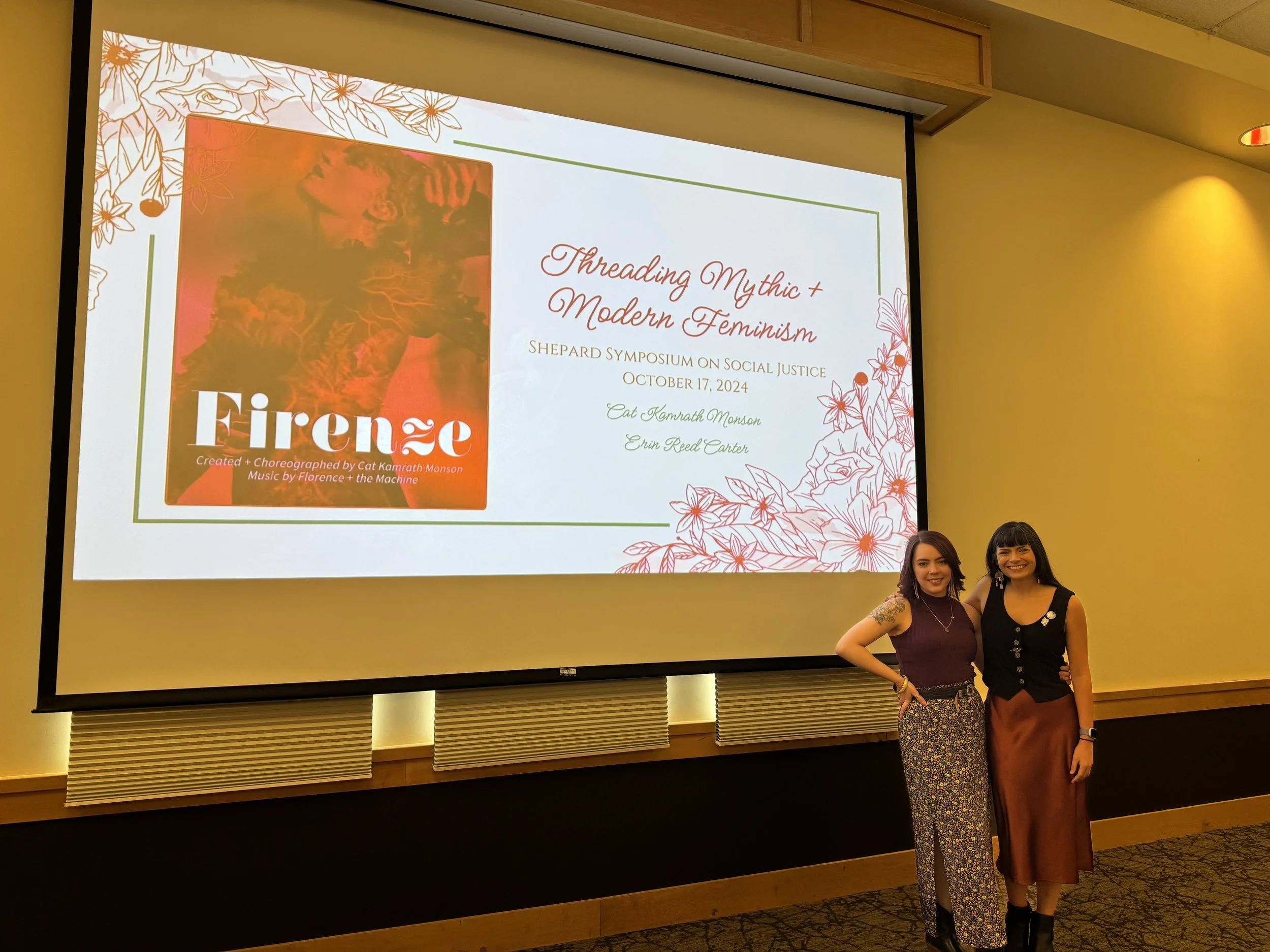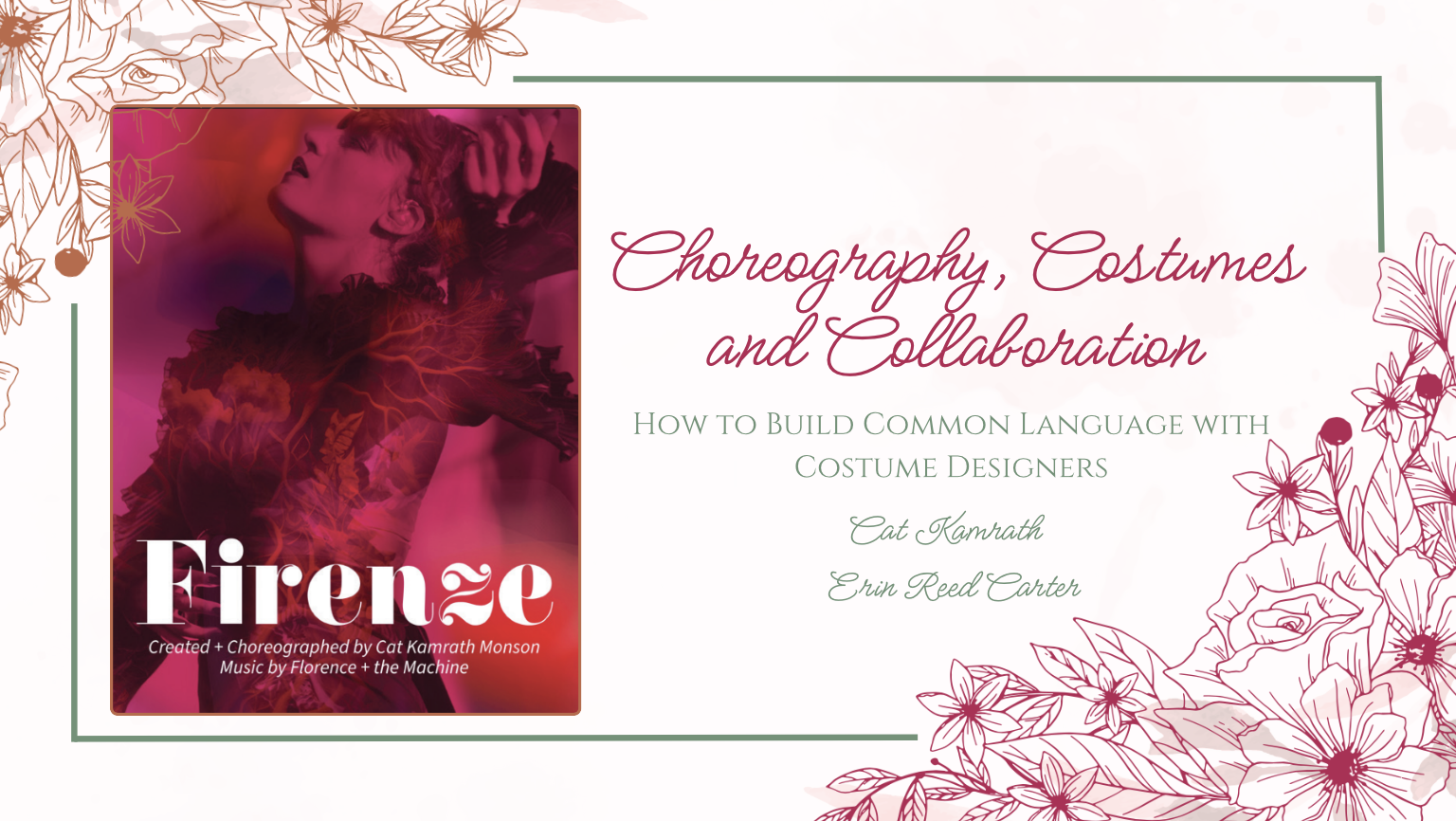Choreography & Costuming with Erin Reed Carter
Firenze: Threading Mythic & Modern Feminism
Presented at the Shepard Symposium for Social Justice - October 2024
Research on costuming and choreography related to Firenze including feminist approaches, women’s history, fabrication, and the structure of the performance.
Firenze talk back
Post-performance talkback sponsored by the Shepard Symposium for Social Justice - October 2024
Conversation with Cat Kamrath & Erin Carter facilitated by
Dr. Eric Jorgensen
choreography, costumes, + Collaboration
Presented at ACDA High-Desert Regional Conference - March 2025
Focus on building common language between choreographers & costume designers using Firenze as
a case study
Psychologically Safer Pedagogical Practices
with Halie Bahr & Nicole Perry
Conference Presentations
Dismantling Perfectionism in the Western Concert Dance Classroom
Presented at Utah Dance Education Organization Conference 2023, Salt Lake City
Dismantling Perfectionism in the Western Concert Dance Classroom
Presented at National Dance Education Organization Conference 2023, Denver
Somatic Pedagogy for Online Learning
Presented at CAMP LBMS 2022, Online; Laban/Bartenieff Institute of Movement Studies
Online Publications
Conversations Across the Field of Dance Studies Vol 43: Ethics, Risk, and Safety in the Field
Dance Studies Association
Psychological Safety in the Western Concert Dance Technique Class focuses on dance educators in higher education redefining, modeling, and cultivating leadership through Timothy Clark’s Four Stages of Psychological Safety (2020). Western concert dance technique classes do not, traditionally, leave much room for contributions or challenges from students. Rather, “one right way” and perfectionism (Tema Okun) are emphasized, as students conform to expectations and aesthetics, or attempt to mold themselves into the example of the teacher. In this session, we articulate the values held in our classrooms and how it shifts our meaning of leadership. Using Clark’s structure, we provide examples to build a classroom that encourages risk-taking, creativity, and growth over perfectionism to build future leaders that use their power to listen, respond, and transform the field of dance.




